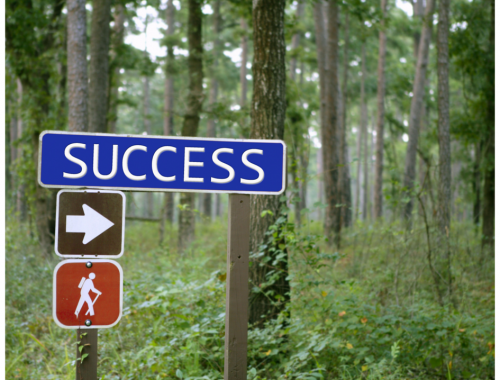It’s the time of year when summer internship and job applications are top of mind, which means potential employers are calling your references, either before or after your interviews. My older son, Nick, mentioned this week that he was calling undergraduate references right now as he sorts through the applicants for a summer field tech to help with his lab’s work. After talking to him, I realized this is an area where college students could use some practical advice.
First, talk to three to five adults who might be possible references. Depending how early you are in your college career, you may need to reach out to high school employers or teachers. If you don’t need references for this summer, take a deep breath and think about whether you have enough possible candidates for the future. If you aren’t working and are at a big school and still in large lecture classes, it may be that you’ve got a gap here. You need to think about where you can make these connections going forward. This is where small classes, attending office hours (for more than arguing over the scoring of your latest essay), and extracurriculars can be very useful. Sometimes a campus job might be a good option, even if you don’t need the extra money. Even volunteering, with its flexible hours, might be possible in your sport’s off-season.
Now that you’ve identified three to five options, reach out to all of them, individually, and ask if they would be willing to serve as a reference for your summer applications. Ideally, you should be able to tell them where you are applying and what attributes you think need to be emphasized. The requirements for a summer job in retail are very different than those for a field tech or a marketing intern.As tough as interviewing is, you want your references aligned with your goals and the more information they have about your goals in this context, the better they can advocate for you. You should be able to tell them the scope of the requested commitment. Did you apply for 15 positions in a variety of industries? That’s not unusual for a freshman or someone looking to maximize their summer income, but for a junior with an eye on resume building for graduate school or specific employment, you’ll need to explain that scatter strategy. Some organizations only permit the confirmation of start and end dates, so those are of very limited use. It’s much better for you to discover those limitations in advance.
Ideally, different people will be your references for the different options you are pursuing. An English professor who loves your work isn’t a great recommendation for most field tech gigs, while the professor who supervised last summer’s research remotely isn’t in a great position to speak to your ability to show up on time every day for your shift. A campus pastor can be a strong reference. Most businesses, whatever the HR person’s beliefs, will be happy to talk to a religious leader. In my experience, coaches are a very mixed bag. Some don’t write well and many can’t spin your athletic gifts in a different context. Don’t try for the most impressive title as a reference—a true advocate who appears to know you well will be a much stronger reference.
Be realistic about the reference’s time. If you email or call to ask someone before using their name and they don’t respond to you in a timely manner, then they aren’t going to be a good reference. In reference checking an unreturned call or email suggests that the reference may not want to go on record saying something negative. At best, it definitely says your reference isn’t a big fan. Since you provided the reference, it’s reasonable to assume these are the biggest fans you could find. It’s definitely not a neutral when the employer can’t connect with your reference. It will be viewed as a negative. And if your references are only able to confirm employment dates, or worst of all, don’t remember you (this happens all the time), the potential employer will not call you to ask for more references—they’ll just move on to the next candidate.
Having reference letters can be a good backup, and may be the most effective solution for a busy professor with hundreds of students. They tend not to be read in advance of an interview, so don’t send them in with your résumé, cover letter, and application. If your résumé has “References available upon request” in some format, always be sure you bring a printed list of those references and their contact information to an interview, both phone and email (no more than one page). The best lists give a name, title, and some context of your relationship, and perhaps time zone information, if it is relevant.
Assistant Professor Julia Johnson
Biology Department
(supervised my chemistry research summer 2016)
julia@greatuniv.edu
212-123-4567 (EST)
This would also be the time to present a prewritten reference letter. Don’t wait to be asked—if you’ve got strong references, make your best effort to get them factored into the decision process. If you have no references to immediately hand over, do not under any circumstances put that standard note on the bottom of your résumé just because I’ve mentioned it here.
Providing references is something you’ll be doing your whole career. I’ve had employees who needed me to serve as a reference for a local landlord. I’ve had employees from several years in the past reach out to me for a reference when they start their job hunt again. It can sometimes be tough to use your current employer as a reference when you are secretly looking to leave, one of many reasons why you always want to leave on a good note. Sometimes it’s been a really long time, but they feel that something about their experience at LYON will be well-suited to this new company’s needs. One of our producers recently left the company to think about what she wanted to do next and she wisely reached out to all three principals and asked if each of us would write LinkedIn endorsements. Having a profile with your most recent employer saying nice things has to help, particularly as the practice of posting jobs through LinkedIn rises.
We are sometimes asked for client references when talking to a potential new client. I go through this same drill, reaching out to current clients who I know are accessible, responsive, and highly articulate, as well as big fans of LYON. I ask their permission, even if I asked six months ago, and ask if they have a preference for contact via email or phone and whether it is okay to give out their mobile phone. I then get to provide that information either in my proposal or sometimes in a follow up email. The last thing I do is circle back with them and let them know if we got the gig or not and thank them again for their time. Because somewhere down the road, I may need to ask again, so I want to make sure the process has been painless and they understand it was instrumental in our success.





No Comments